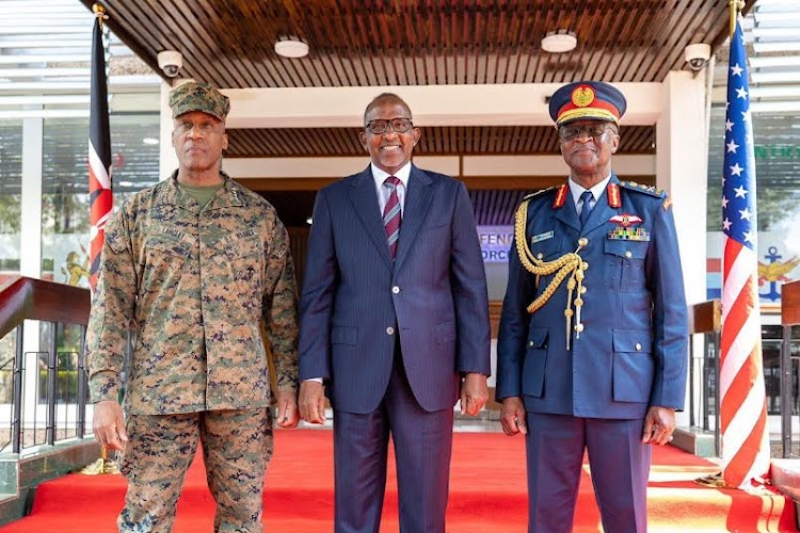In the wake of mounting security concerns in the Horn of Africa, a delegation of top United States security officials has descended upon Nairobi, emphasizing the pivotal role Kenya plays in resolving the multifaceted crisis. Lieutenant General Michael Langley, Commander of the United States Africa Command (AFRICOM), recently engaged in a series of high-level meetings with Kenyan security leaders. Sources reveal that these discussions aim to formulate strategies to tackle the deteriorating situation in Somalia, Ethiopia, the Democratic Republic of the Congo, Sudan, Burundi, and South Sudan.
A recent meeting between the Director of the Central Intelligence Agency (CIA) and Kenyan President William Ruto on January 15, 2024, highlighted the urgency of the situation. General Langley’s subsequent visit signals the United States’ commitment to addressing the escalating threats in the region.
Continuing his diplomatic mission, General Langley held crucial discussions with Defense Cabinet Secretary Aden Duale on January 23 at the Defense Headquarters in Nairobi. Duale emphasized the robust partnership between Kenya and AFRICOM, highlighting collaborative efforts in counter-terrorism, maritime security, and peace support activities. This partnership, he noted, reflects a shared commitment to addressing regional challenges and fostering global stability.
Nairobi’s Central Role in Countering Threats
Nairobi emerges as the focal point for discussions due to its strategic significance in countering the growing threats in the Horn of Africa. With General Langley’s visit and the recent meeting between the CIA Director and President Ruto, the international community is looking to Nairobi to take the lead in crafting solutions for the region’s security challenges.
Keep Reading
Strengthening US-Kenya Defense Cooperation
Defense Cabinet Secretary Aden Duale highlighted the longstanding partnership between Kenya and the United States in addressing shared security concerns. Discussions included intelligence sharing, maritime security, joint training, and military aid, with Duale advocating for continued collaboration through the use of excess defense articles (EDA). Both nations have established a framework for active defense cooperation from 2023 to 2028, showcasing a commitment to long-term collaboration.
AFRICOM’s Role in Regional Stability
General Langley’s role as Commander of AFRICOM underscores the United States’ commitment to ensuring stability in Africa. AFRICOM, operational since 2008, oversees military actions in 53 African states. The collaboration with Kenya reflects broader efforts to combat transnational threats, enhance security forces, and respond effectively to crises, thereby promoting regional security, stability, and prosperity.
Regional Challenges and Collaborative Efforts
The challenges faced by nations in the Horn of Africa and the Great Lakes Region demand collaborative efforts. The visit by General Langley and his discussions with Kenyan officials underline the need for a unified approach to address complex regional issues, including political instability, insurgency, and humanitarian crises.
Bilateral Strategic Dialogue and Defense Forums
The national Bilateral Strategic Dialogue (BSD) and the biennial ministerial Bilateral Defense Forum (BDF) serve as examples of how Kenya and the United States have a relationship that goes beyond ad hoc discussions. These platforms facilitate ongoing dialogue, ensuring a continuous exchange of insights and strategies to adapt to evolving security dynamics in the region.
Sustaining Global Stability through Collaboration
Aden Duale, the Defense Cabinet Secretary, emphasized the cooperative effort as a commitment to enhancing the partnership between the two countries in his statement. This commitment extends beyond immediate security concerns, encompassing broader global stability goals that benefit both Kenya and the United States.

